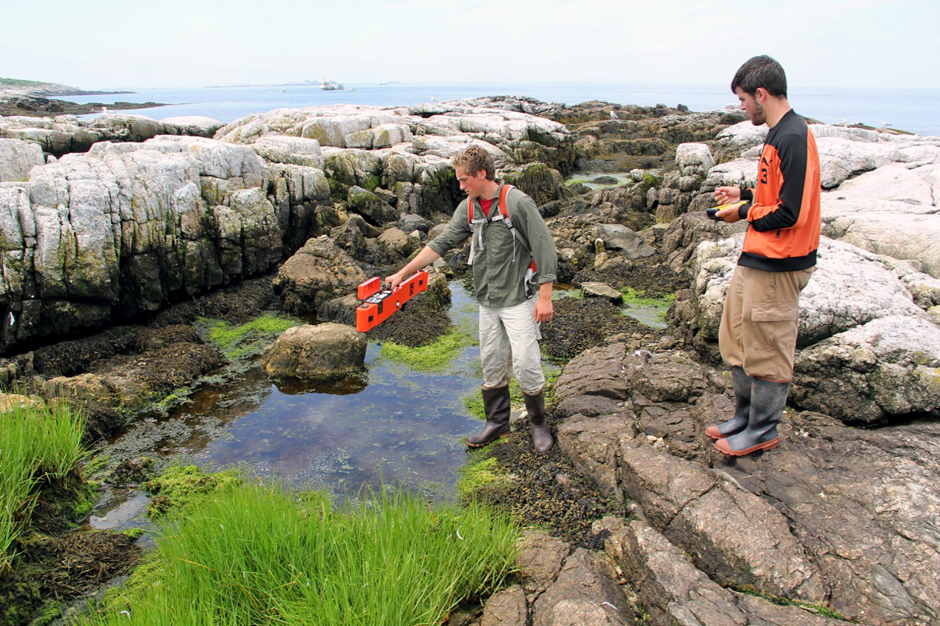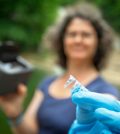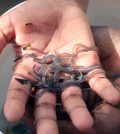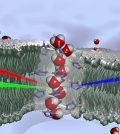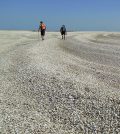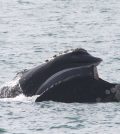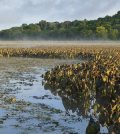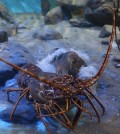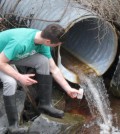Posts for tag "Cornell University"
Shoals Marine Laboratory: Over 50 Years of Undergraduate Research Excellence
Appledore Island’s rocky shores and unique flora and fauna provide outstanding research opportunities for college students at Shoals Marine Laboratory.
- Posted April 11, 2019
From Scrub-Jay DNA to Cycles of Carbon, Water and Fire: Archbold Biological Station Offers A Deep Look at Conservation
Archbold Biological Station is a wildlife research haven in the heart of Florida with extensive long-term records for rare species, fire, floods and more.
- Posted November 20, 2018
eDNA Tests Swimmability in 90 Minutes or Less
A handheld qPCR thermocycler is allowing water quality testing for bacteria in 90 minutes or less, confirming whether water is swimmable.
- Posted October 22, 2018
Healthy Lakes Have Real, Calculable Value for Humans
Interdisciplinary research provides an in-depth look at how humans and lakes affect each other, and how we value healthy lake ecosystems.
- Posted October 11, 2018
Eel Excitement: At Hudson River NERR, Environmental Monitoring Takes A Slippery Turn
New York’s Hudson River NERR participates in typical SWMP monitoring, but it also does some unique environmental monitoring, such as keeping a close watch on its eels.
- Posted August 16, 2018
Chiral Water Reveals New Pathways Toward Desalination and Purification
Serendipitously, researchers discovered artificial water channels, chiral water pathways, which hold major potential for new water treatment technologies.
- Posted May 17, 2018
Miniscule Colorado River Delta Clam Populations Reveal Carbon Flux
Using clam shells, Cornell University scientists calculate the amount of carbon that the Colorado River Delta once contributed to the atmosphere.
- Posted November 15, 2016
Warming Waters Threaten Marine Species On US Coasts
Key marine species on the East and West coasts of the United States face an uncertain future thanks to climate change, say Cornell University scientists.
- Posted September 13, 2016
Hudson River Wetlands May Increase With Rising Seas
Cornell University scientists have predicted the fate of Hudson River wetlands in the future, according to a release. And in spite of predicted climate change and rising seas, researchers say that wetlands along the river are likely...
- Posted July 18, 2016
New Findings Encourage Soil-Carbon Modeling Update
Researchers at Cornell University and Oregon State University are calling for updated soil-carbon modeling techniques, according to a release from Cornell. They say that new methods are needed in light of new findings and changes to the...
- Posted November 30, 2015
New England Marine Species Affected By Warming Waters, Shell Disease
Although ocean waters all over the globe have been warming, the Gulf of Maine has been warming faster than 90 percent of them. This accelerated warming could mean dramatic effects on New England cod, lobster and right...
- Posted November 9, 2015
Climate Forecasts Grim For Coral Reefs
As climate change causes seawater temperatures’ continual climb, corals become more vulnerable to disease and disease carriers. And as coral reefs serve as global sources of revenue, preserving them is important. But new climate predictions look grim...
- Posted May 19, 2015
Road salt runoff flowing into streams near Cornell approaches ocean-like salinity
Researchers at Cornell have found that road salt runoff flowing into streams near campus reaches salinity levels on par with the ocean.
- Posted April 14, 2015


